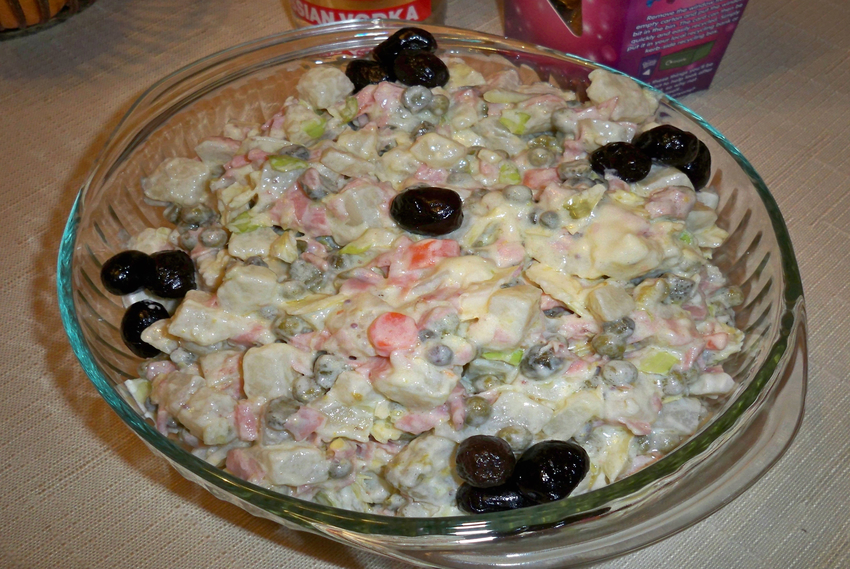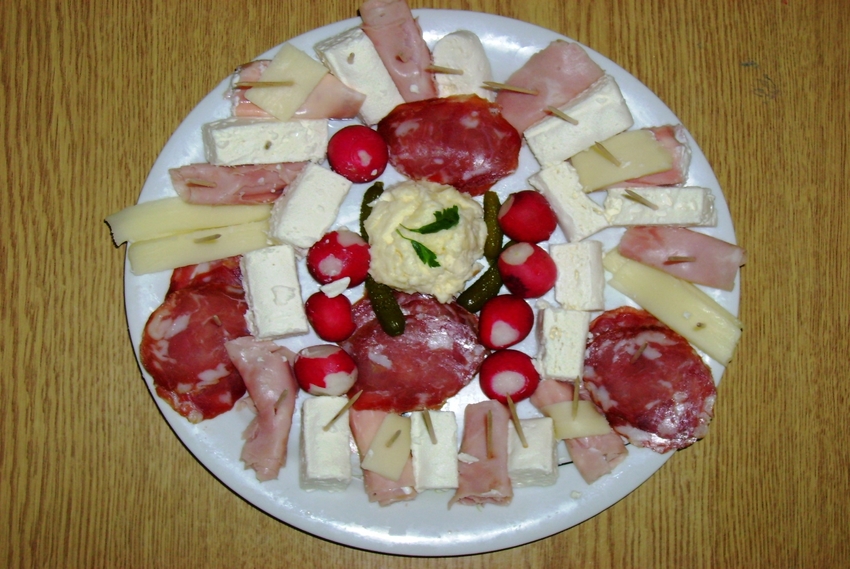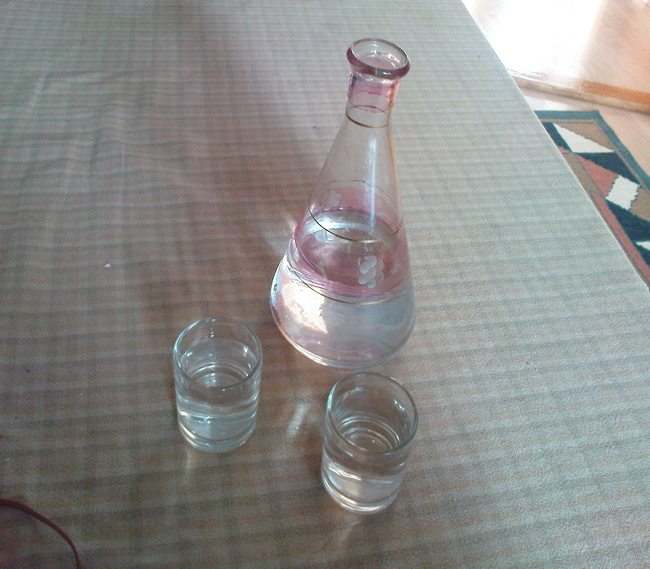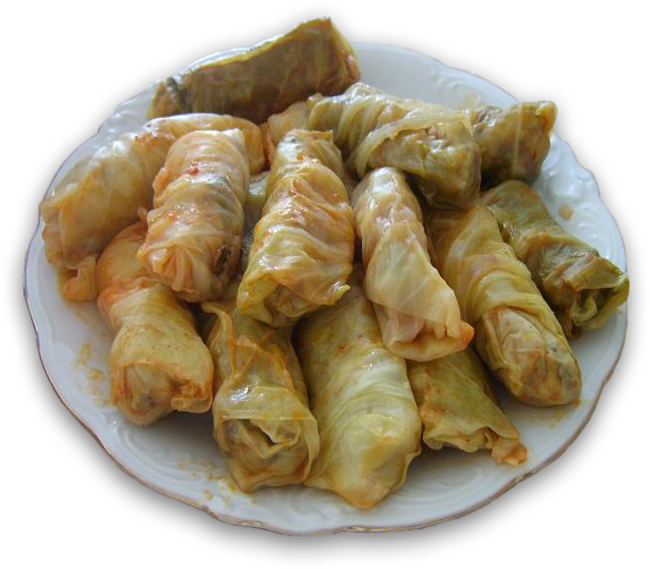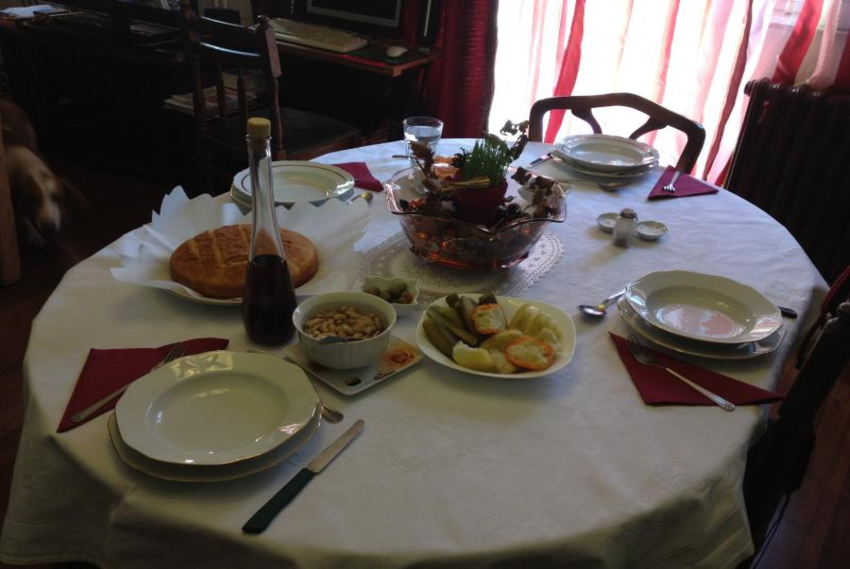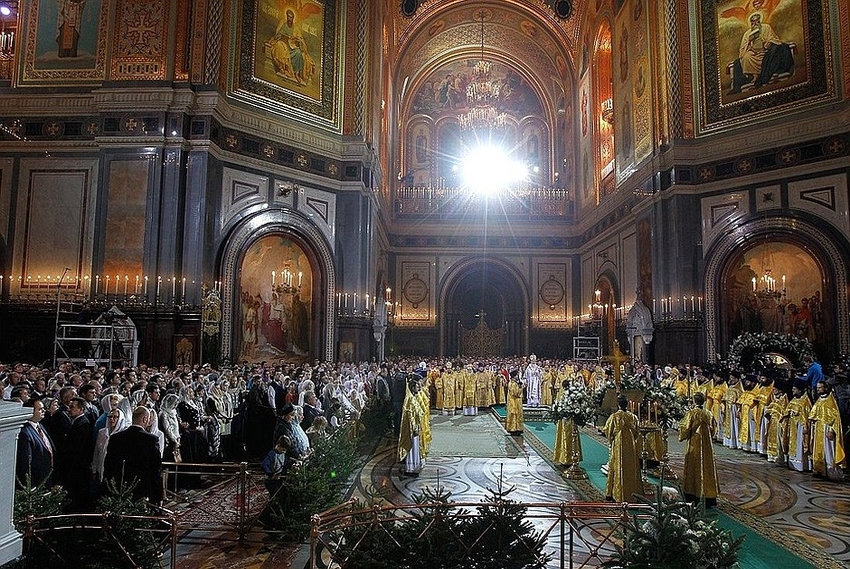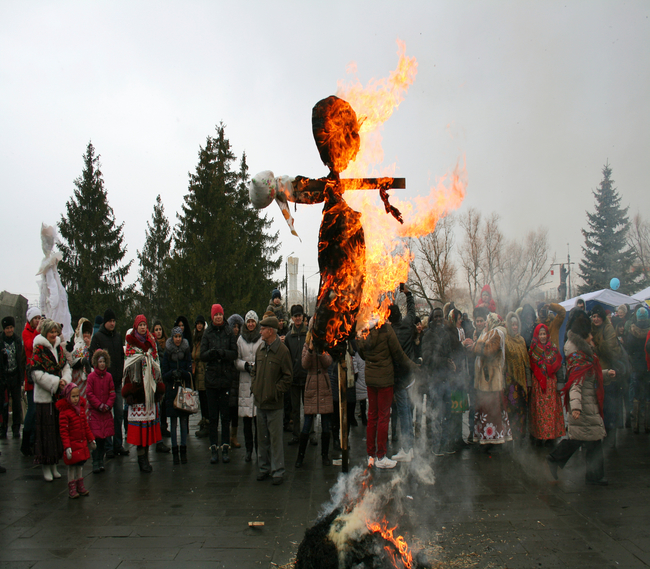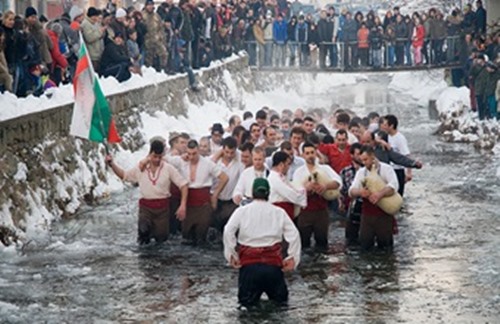Slavic ortodox holidays
Slavic holidays are full of joy, cooking and feasts, visiting neighbours and relatives, strolling outside in the snow...
Let's start with the new year. New year isn't just a simple night evening, it the craziest night in the year. Eating too much, too much alchohol, presents under the tree, delivered by santa..and the main dish for the new year eve is olivier salad..we also call it "ruska salad". Mix some potatoes, carrot, eggs, pickles, peas, sliced salami, and parsley together in a large bowl; stir in mayonnaise until salad is evenly coated, and it's done.
